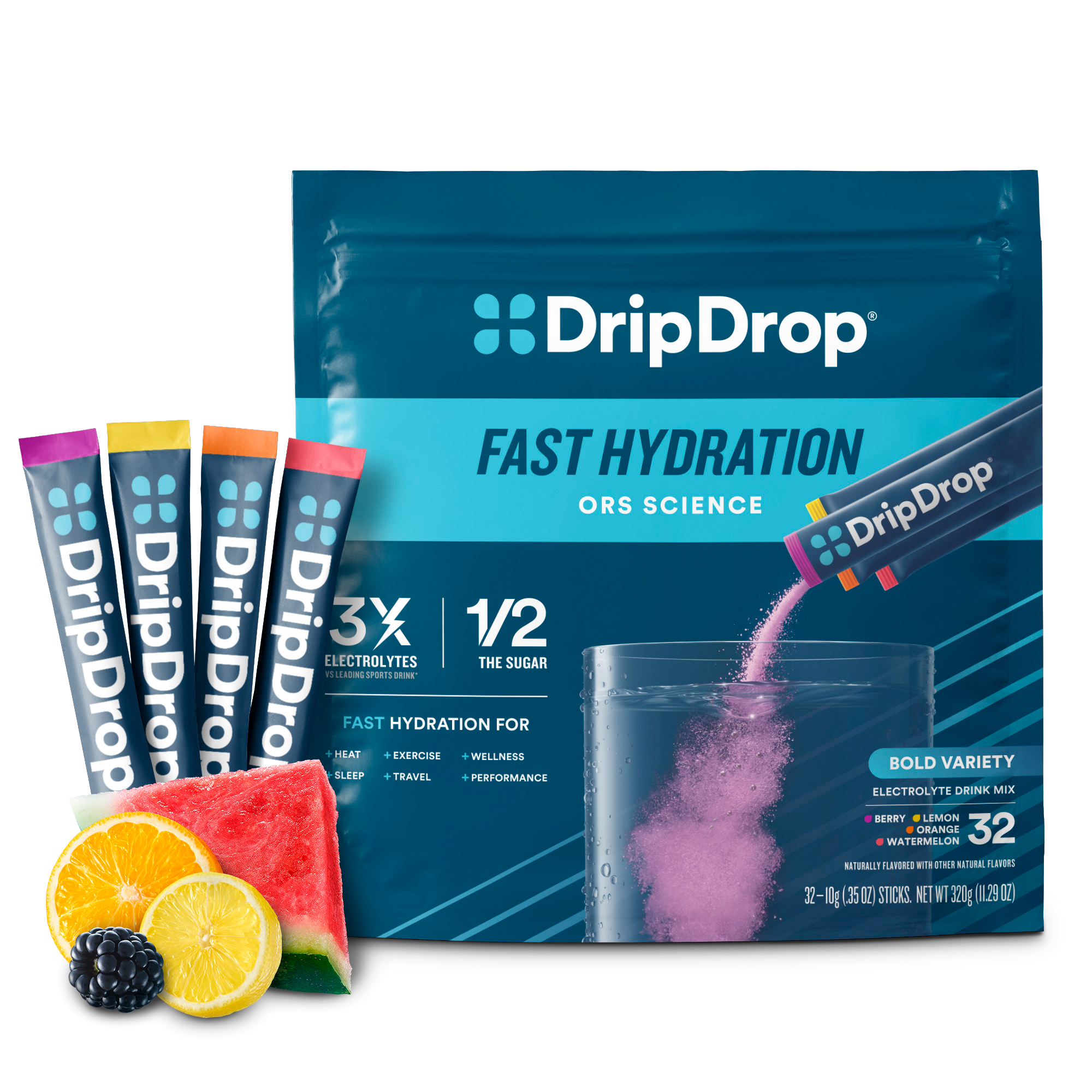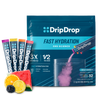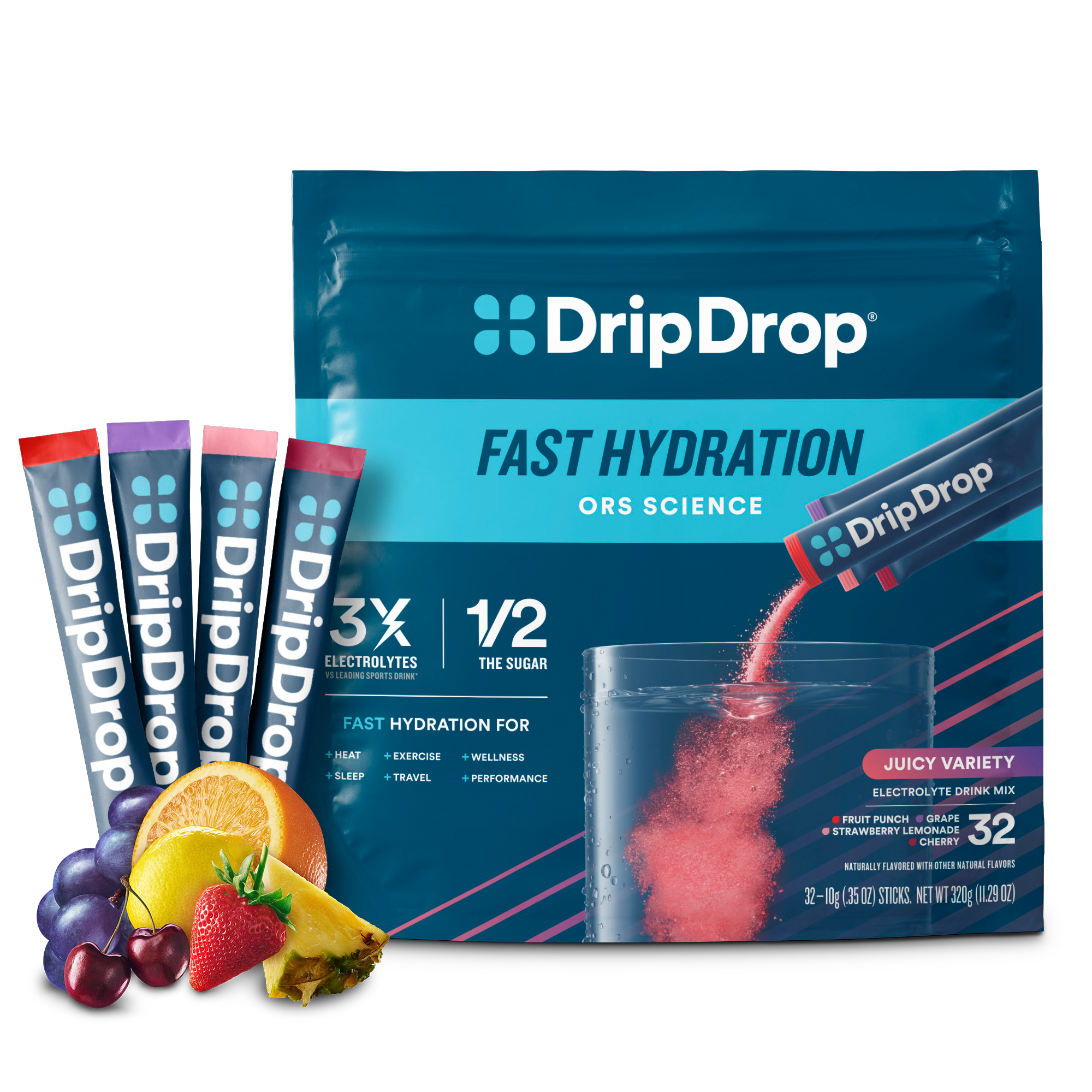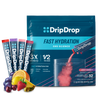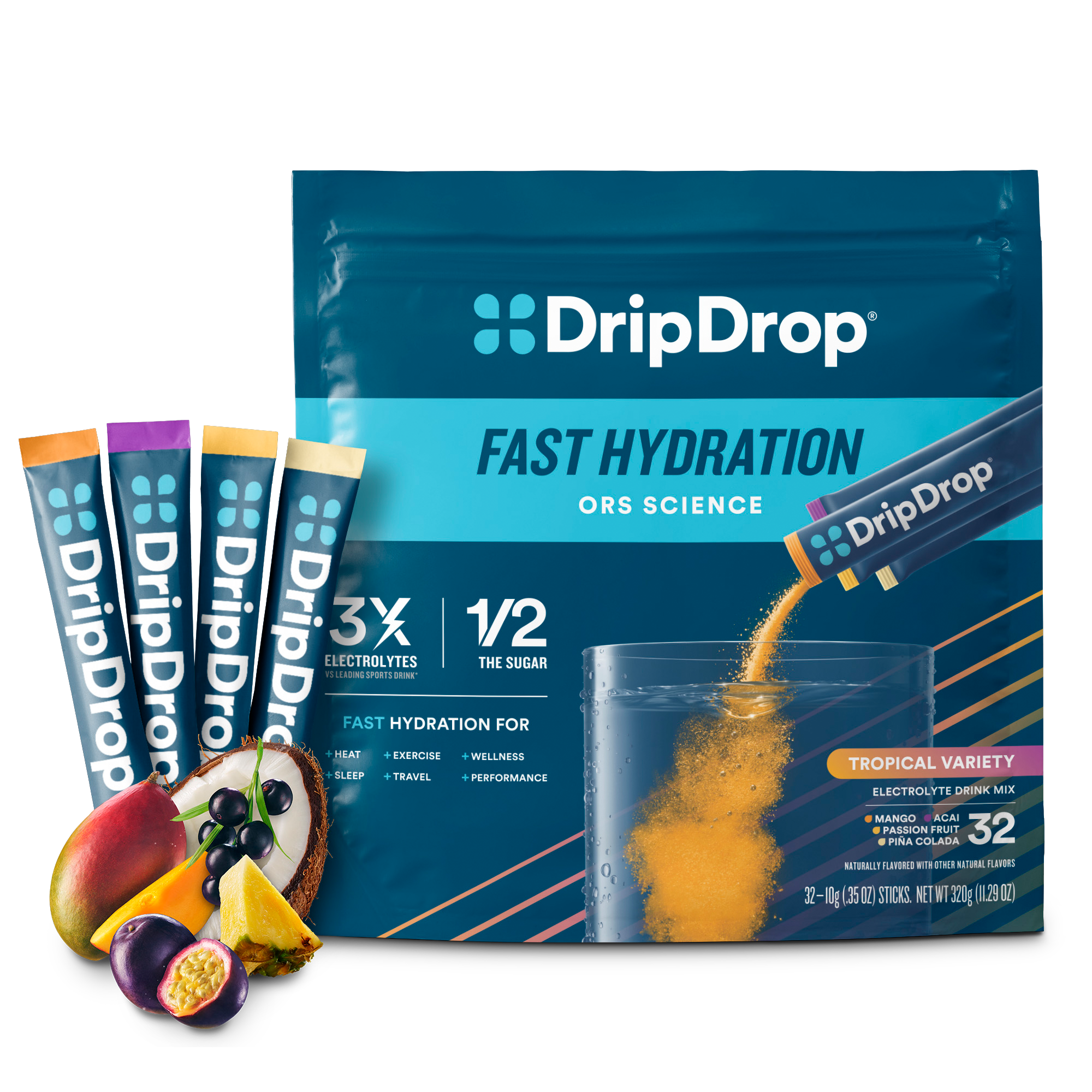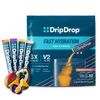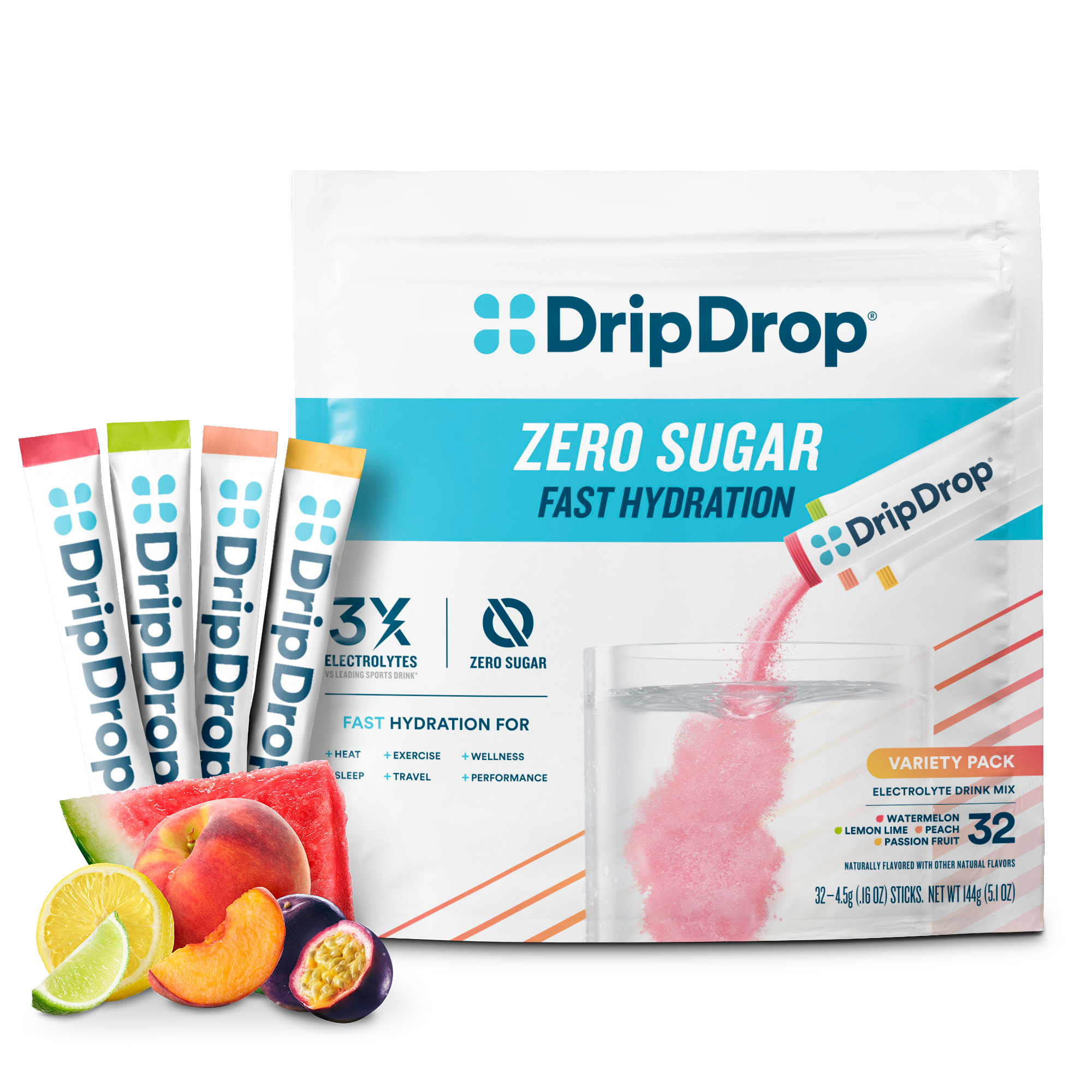A cold sweat is not caused by heat or exertion. You’ve most likely experienced it before: maybe you’ve broken out in sweat during a fever, or your palms might get clammy when you’ve been anxious, or perhaps you’ve woken up from a nightmare completely drenched.
Sweating is your body's instinctive response to high temperatures. When the weather is too hot, when you bundle up for the cold, or when you exercise, your body temperature rises, you sweat, and you cool down as the sweat evaporates. This is the main function of sweat, but sweating can also occur for other reasons.
When sweat is not brought on by heat or exertion, we refer to it as cold sweat. It is often experienced at night, in which case it is known as a night sweat. This is in part because of body temperature fluctuations at night. It is a normal experience and generally not cause for alarm, but it’s a good idea to consider possible causes when it does happen.
Known medically as diaphoresis, cold sweats can be brought on by many common health conditions such as fever, low blood sugar (hypoglycemia), and menopause. Read on to learn about possible causes of cold sweats, how dehydration relates to their treatment and prevention, and when to see a doctor.
What Causes Cold Sweats?
Cold sweats may be a symptom of a variety of health conditions. Treating the underlying cause may be necessary to lessen the frequency of cold sweats, so it is important to be familiar with possible causes. Here are some possible causes of cold sweats.
Keep in mind that sweating means a loss of fluid and electrolytes, so having an oral rehydration solution around can help you stay prepared.
Fever
When you are fighting an infection, your body temperature may rise, giving you a fever. Excessive sweating during a fever doesn’t necessarily mean the fever is breaking, as it’s very normal for your body temperature to fluctuate during a fever. One can also commonly alternate between sweating when your temperature drops and shivering when your temperature rises again.
This may sound backwards, but the air around you feels colder as your body temperature rises, especially if you are already covered in sweat, causing you to shiver. Your body wants to maintain its new temperature, and shivering creates some warmth. Staying hydrated when experiencing a fever is absolutely crucial, in part to replace fluids and electrolytes lost to excessive sweating.
Low Blood Sugar
Blood sugar that is too low can cause excessive sweating and needs to be treated right away. Also known as hypoglycemia, low blood sugar refers to a fasting blood glucose level lower than 70 mg/dL. It can happen to anyone who goes too long without eating, but it is a very common complication among people who have problems managing blood sugar and/or take insulin to manage blood sugar. Hypoglycemia can also happen as the result of developing a resistance to insulin medication.
Low Blood Pressure
Hypotension, or low blood pressure, is another potential cause of cold sweats. This is often brought on by shock, which can be the result of serious injury or sudden trauma triggering the body’s fight or flight response. Low blood pressure can also be brought on by a heart attack or a very low heart rate. Dangerously low blood pressure can cause fainting and excessive sweating. It should be treated by lying flat on the back. Staying hydrated may also help prevent low blood pressure.
Lymphoma
Lymphoma is any cancer of the lymph system, and one of the common symptoms of lymphoma is night sweats.
Other types of cancer such as leukemia can also cause night sweats, in part because of the side effects of cancer drugs.
Extreme Anxiety
Similar to shock, extreme anxiety or fear such as panic attacks can also trigger a stress response and cause excessive sweating. Certain anxiety disorders can make cold sweats more common. For example, hyperhidrosis is a disorder characterized by overactive sweat glands and can be a secondary symptom of other anxiety disorders. Typically, those with hyperhidrosis experience excessive sweating in the hands, feet, and/or underarms. Cold sweats can also be a side effect of many common antidepressants as well as antidepressant withdrawal.
Drugs and Withdrawal
We've already seen that certain drugs such as diabetes drugs, cancer drugs, and antidepressants can cause cold sweats. Other drugs that list excessive sweating as a potential side effect include prescription pain medications, antibiotics, heartburn meditations, and asthma inhalers.
Sometimes, we need to take these drugs for an underlying health condition. In this case, the side effects may be unavoidable and can be treated as separate conditions.
Additionally, alcohol withdrawal is known to cause excessive sweating. It is important to seek medical advice any time you stop taking a drug.
Menopause
The hormonal changes that accompany menopause and perimenopause (the transition to menopause) can induce a wide variety of symptoms, including “hot flashes” accompanied by excessive sweating. It is important to understand that menopause is a natural part of female aging and that each symptom of menopause is not necessarily a health issue. However, it is also important to have a plan to manage menopause symptoms, particularly if they become unbearable. It is also important to stay hydrated during menopause, particularly given that dehydration is common among the elderly.
Cold Sweats and Dehydration
While the above health conditions are not an exhaustive list of all possible causes of cold sweats, it is always key to treat the secondary effects of excessive sweating regardless of the cause.
Having the right balance of fluids and electrolytes helps your body perform all of its tasks more efficiently, including fighting infections and regulating blood flow and body temperature.
When to See a Doctor for Cold Sweats
When cold sweats are a symptom of an underlying condition, seek medical care to help you closely monitor and/or treat the condition. When cold sweats are accompanied by chest pain, palpitations, shortness of breath, and/or extreme nausea or dizziness, this may constitute a life-threatening medical emergency, and you should see a doctor right away.
If you’re not sure what is causing your cold sweats, you may want to seek medical advice to figure out if there is an underlying condition to address. For example, night sweats that have been ongoing for several weeks or longer may necessitate a visit to the doctor.
Use DripDrop to Replace Electrolytes and Fluids
When your body sweats, it loses both water and electrolytes. That’s why addressing it by simply drinking water may not be enough. No amount of pure water will help you replace the electrolytes you've lost, and drinking too much water may even worsen your body's electrolyte balance. It is important to drink beverages with the appropriate ratio of electrolytes to replace fluids you’ve lost to sweating.
Instead of choosing a sports drink with too much sugar and sodium, consider a solution such as DripDrop. The doctor-developed formula provides medically relevant electrolyte levels and exceeds the standards set by the WHO. By comparison, sports drinks contain about one-third the electrolytes of DripDrop and about twice as much sugar.
DripDrop also supplies essential vitamins such as zinc, potassium, and magnesium. It’s powerful enough to use in extreme circumstances but safe enough for everyday use, and it is inexpensive and convenient. Get started with our most popular multi-flavor pouch for dehydration relief fast. Or, learn more about how you can save up to 25% on every purchase when you subscribe.



